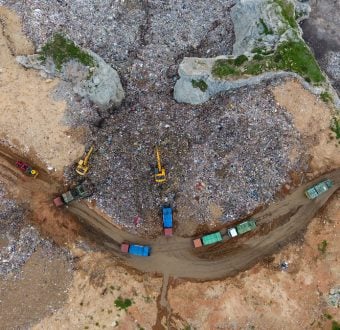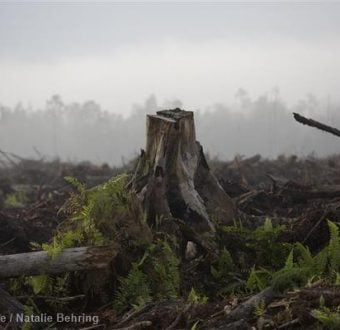
Welcome to dinner. Chances are that your dinner plate includes a portion of chicken or beef and a yummy dessert awaits. But do you ever wonder where your food comes from?
Before you dive in, consider this:
With the COVID-19 pandemic, we have been learning more and more about the dangers that meatpacking workers face in the U.S.; along with nursing homes, meat plant workers face some of the highest COVID-19 contraction rates in the country. The story doesn’t end there. The Center for Disease Control finally acknowledged that nearly 90% of the workers that have been exposed to COVID-19 are Black, Latino and immigrant workers. This is the perverse side of the meatpacking industry. Earlier this month, meat plant workers at JBS and Tyson filed a discriminatory complaint with USDA for violating the Civil Rights Act.
How does industrial agriculture affect the environment?
For many, this might be the first time you’re becoming aware of industrial meat production. We are learning about the people who help food get to our tables. We are learning what the mega corporations who own these meat plants are focused on — and it’s not the workers. They are risking worker’s lives to gain profits from beef, poultry, and pork being processed at these facilities. Does this change how people feel about their dinner? It is not just here in the U.S.; this is a globalized system of production that is destroying the world’s forests and Indigenous communities as well.
While meat plants and mega farms have always been places of inequality and exploitation, COVID-19 has only further exposed how destructive this system really is. Do you want to eat a chocolate bar with palm oil grown on stolen lands, violating human rights, and decimating the homes of orangutans? I don’t want my dinner plate loaded with meat and poultry tainted by forest destruction, with a side of pesticides.
We’ve heard a lot from companies in the past few months telling us that they are growing food to feed us. But the reality is they are destroying critical ecosystems like Brazil’s Amazon rainforest and the Cerrado grasslands—and on the other side of the globe, Indonesia’s peatlands.

Greenpeace has decided to lift the curtain a little further to show the world the broken food system and how it is feeding corporate profit, versus keeping us and the planet healthy.
We want to shed light on industrial agriculture, what it is, and how it remains a driver of deforestation along with all of its climate and biodiversity impacts. To do this, we partnered up with Alice Braga, a Brazilian actor who’s known internationally for her roles in movies such as City of God, Blindness and most recently New Mutants and the show Queen of the South.
Over the next week, Greenpeace will be sharing a three part video-series, Countdown To Destruction, that explores the mass production of soy, meat, dairy and palm oil, and how these commodities are devouring the world’s forests and fueling a climate and biodiversity crisis.
The videos will bring into sharp focus the systems in place that are ripping apart the Amazon rainforests for huge cattle pastures. Meanwhile, in Indonesia, forests are being cleared, set on fire and bulldozed to make way for palm oil plantations.
Warning: This will be disturbing. Our goal is to educate, raise awareness, and start a conversation so each of us can make more informed decisions about what we feed our families. We deserve better.





